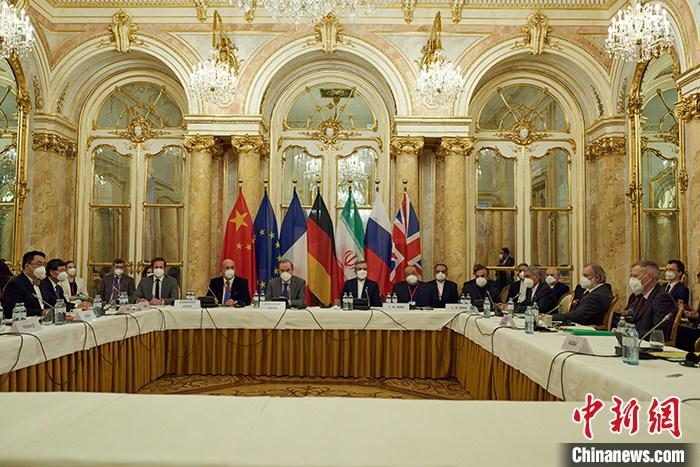Xinhua News Agency, Vienna, December 3 (Reporter Yu Tao and Li Xuejun) Representatives of relevant parties to the Comprehensive Agreement on the Iranian Nuclear Issue agreed to adjourn the meeting in the Austrian capital of Vienna on the 3rd. The talks between the relevant parties to the Iranian nuclear agreement will continue in Vienna next week.
On November 29, the political director-general meeting of the Joint Commission on the Comprehensive Agreement on the Iranian Nuclear Issue was held in Vienna to restart a new round of negotiations between the United States and Iran to resume the implementation of the agreement.
The meeting was chaired by the Deputy Secretary-General of the European Union’s External Action Agency. Iranian Deputy Foreign Minister Bagheri, Russian, British, French, and German officials attended the meeting.
Ambassador Wang Qun, Chinese negotiator and permanent representative to Vienna, led a delegation to attend.
Photo courtesy of China's Permanent Mission to the United Nations in Vienna
In the afternoon of the same day, the political director-general meeting of the Joint Commission on the Iranian Nuclear Agreement was held at the Coburg Hotel in Vienna.
Wang Qun, Chinese negotiator and permanent representative of China to the United Nations in Vienna, told the media after the meeting that since the start of the seventh round of US-Iran resumption negotiations, all parties have been serious. Although the negotiations are far from achieving a breakthrough, they should not be underestimated. Progress.
The parties agreed to temporarily adjourn the meeting so that they can assess the situation since the resumption of the negotiations.
China hopes that this will inject new political impetus into the negotiations that will continue next week. At the same time, it is hoped that the parties concerned will continue to work hard to create a good atmosphere for negotiations during the adjournment.
The Deputy Secretary-General of the European Union’s External Action Agency said that the talks still face considerable challenges and there is still a lot of work to be done. Time does not wait. All parties must feel urgency.
In July 2015, Iran reached an Iran nuclear agreement with the United States, Britain, France, Russia, China and Germany.
In May 2018, the US government unilaterally withdrew from the Iran nuclear agreement, and subsequently restarted and added a series of sanctions against Iran.
Since May 2019, Iran has gradually suspended the implementation of certain provisions of the Iran nuclear agreement, but promised that the measures taken are "reversible."
The parties involved in the Iranian nuclear agreement began to hold talks in Vienna in April this year to discuss the issue of the United States and Iran resuming the implementation of the agreement.
Due to serious differences between the United States and Iran and the change of leadership of the Iranian government, the talks were suspended after six rounds.
A new round of talks began in Vienna on November 29.

